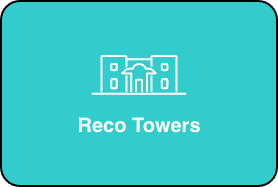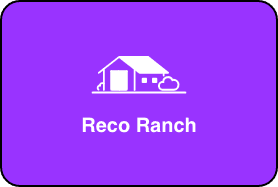Essential Components of Recovery at Reco Delray Beach

Embarking on the Journey to Sober Living
Understanding Sober Living in Delray Beach
Sober living in Delray Beach offers individuals a unique opportunity to embrace recovery in a supportive and nurturing environment. Delray Beach is home to numerous recovery programs that facilitate the transition from treatment to an independent sober life. The vibrant community and idyllic setting provide an ideal backdrop for those seeking to rebuild their lives free from substance use disorders.
Participating in sober living in Delray Beach ensures access to comprehensive addiction recovery support. At RECO Institute, we provide not just a place to live, but a community where individuals can connect with like-minded peers. Here, recovery is not just a goal, but a shared journey fueled by mutual support, understanding, and growth.
The Vital Role of Transitional Living Programs
Transitional living programs in Florida, such as those offered by RECO Institute, play a vital role in the recovery process. These programs serve as a bridge between intensive treatment and independent living, offering structure through supportive environments and daily routines. The key to successful recovery often lies in these crucial transition phases where individuals can apply their learned skills in real-world settings.
Moreover, transitional housing programs in Florida provide an essential framework for relapse prevention. By immersing residents in a community focused on sobriety and accountability, these programs lay the groundwork for sustainable, long-term recovery. Here, residents learn to navigate life without reliance on substances, supported by compassionate mentors and rigorous peer guidance.
Embracing a Drug-Free Environment
In the quest for recovery, embracing a drug-free environment is imperative. At RECO Institute, we foster a drug-free atmosphere that is both safe and conducive to healing. Being surrounded by others who are also committed to sobriety can dramatically affect an individual’s recovery journey. Such an environment offers the stability needed to focus on the personal growth required to maintain long-term sobriety.
Residents build resilience against temptation and relapse triggers through structured daily routines and group involvement. Engaging in a communal therapeutic community living setting enhances motivation and accountability. They are encouraged to work together through challenges, celebrate successes, and to always strive for personal growth within a supportive peer network. This collective effort towards sobriety defines the essence of successful recovery at RECO Institute.
Holistic Recovery: A Comprehensive Approach
Integrating Mental Health Support in Recovery
For sustainable sober living, integrating mental health support in recovery is indispensable. At RECO Institute, mental health care is melded with addiction recovery help, acknowledging that mental well-being is pivotal to overcoming substance use disorders. Depression, anxiety, and other mental health issues often coexist with addiction, necessitating simultaneous treatment for effective recovery. By providing access to mental health resources, residents learn coping strategies that are instrumental in navigating emotional challenges without reverting to substances. This dual approach not only mitigates the risk of relapse but also fortifies residents’ ability to enjoy a fulfilling sober life. By visiting resources like mental health support in recovery, individuals gain the support needed to build resilience and confidence.
Creating a treatment program that addresses mental health and addiction concurrently paves the way for a more complete and robust recovery journey. Our innovative addiction recovery solutions incorporate therapy sessions, support groups, and individualized care plans tailored to each resident’s unique needs. This holistic recovery approach underlines the importance of mental health in the broader spectrum of recovery, ensuring residents have the tools they need to maintain their sobriety in the long term.
Recovery and Wellness: A Symbiotic Relationship
The relationship between recovery and wellness is symbiotic, forming the foundation for a life of sustained sobriety. At the heart of RECO Institute’s philosophy is the belief that wellness-encompassing physical, emotional, and spiritual health-is critical to recovery success. Engaging in wellness activities not only supports physical health but also fosters a sense of purpose and fulfillment, essential components in the recovery journey. Our programs incorporate a range of wellness practices, such as yoga, meditation, and exercise, which are crucial for promoting overall well-being.
Prioritizing wellness allows individuals to replace old habits with positive, affirming practices that enhance their recovery experience. This commitment to health extends beyond physical activities and into nurturing a positive mindset and emotional balance. By embracing a wellness-oriented lifestyle, residents are better equipped to handle the stresses of daily life while reducing the risk of relapse. Our focus on wellness underscores its role as a pillar of successful and sustainable recovery.
Therapeutic Community Living for Sustainable Sobriety
Therapeutic community living is a cornerstone of sustainable sobriety at RECO Institute. The model is built on the principle of mutual support and shared goals, where residents contribute to and benefit from the communal recovery experience. By engaging in a therapeutic community living environment, individuals experience the healing power of belonging and understand the strength found in collective recovery efforts.
In this structured setting, residents partake in house meetings, support groups, and daily activities designed to foster accountability and responsibility. This environment cultivates personal growth while encouraging residents to learn from one another’s experiences and insights. It’s an opportunity to develop and refine essential life skills that aid in the transition to independent living.
The supportive framework of therapeutic community living equips residents with the essential resources and guidance needed to maintain sobriety beyond their stay at RECO Institute. Empowered by this immersive experience, residents are better prepared to face external challenges, making therapeutic community living an invaluable component in the landscape of sober living. As a model for holistic recovery, it fosters a network of supportive relationships that extend far beyond recovery housing, ensuring that the journey to sobriety is reinforced by a lasting community.


From Treatment to Transformation
Relapse Prevention: Strategies for Long-Term Success
Effective addiction recovery is deeply rooted in robust relapse prevention strategies. At RECO Institute, we understand that the risk of relapse remains even after leaving a structured treatment program. Our approach is comprehensive, focusing on empowering individuals to recognize triggers and manage cravings. This involves personalized recovery plans tailored to individual needs, enabling residents to build resilience against the challenges they may encounter in their sober lives.
Incorporating relapse prevention strategies is key to sustainable, long-term success. These strategies include cognitive-behavioral techniques that help individuals identify and alter negative thought patterns. Regular engagement in support groups and 12-step meetings provides a platform for sharing experiences and learning from others. This network not only reinforces commitment to sobriety but also cultivates a supportive environment crucial for navigating life’s complexities without resorting to substance use.
Life Skills Development in Recovery
Life skills development in recovery is pivotal for individuals transitioning from treatment to independent sober living. At RECO Institute, we emphasize equipping residents with essential skills for daily life management. This includes financial literacy, effective communication, and time management, enabling them to face real-world challenges confidently and competently. Mastering these skills builds the foundation for a stable and rewarding life post-recovery.
Our life skills development in recovery programs are designed to address the unique hurdles faced by those in early recovery. Through workshops and practical applications, residents learn to navigate everyday responsibilities without relying on substances. These skills are integral to a successful reintegration into society and the workforce, empowering individuals to lead fulfilling lives centered around sobriety and self-sufficiency.
Recovery Skills Training: A Catalyst for Change
Recovery skills training serves as a catalyst for transformative change, laying the groundwork for positive life alterations. At RECO Institute, we believe that building robust recovery skills is critical to long-term sobriety. This involves comprehensive addiction treatment solutions tailored to each resident’s unique journey, promoting accountability and self-awareness as cornerstones of the recovery process.
Our training programs encompass a wide range of evidence-based recovery practices, integrating cognitive-behavioral therapy and mindfulness strategies to aid emotional regulation and stress management. Residents are encouraged to engage in activities that promote personal growth, whether through community service or creative expression. By fostering an environment of continuous learning and support, RECO Institute empowers individuals to thrive beyond addiction, sculpting a sober life rich with potential and purpose.
Community and Connection: The Heart of Recovery Housing
Building a Supportive Environment with Peer Support
Creating a supportive environment is fundamental to successful recovery housing. At RECO Institute, peer support serves as the cornerstone of our recovery programs. Residents benefit immensely from engaging in a community where mutual understanding and shared goals prevail. Community support in recovery housing strengthens residents’ resolve by creating a nurturing atmosphere that emphasizes collective growth. This sense of community fosters a supportive environment in which individuals are encouraged to share their experiences, benefiting from diverse perspectives that enhance personal insights. By living among peers who are on a similar journey to sobriety, residents find encouragement and accountability, creating an emotional safety net vital for maintaining long-term sobriety.
The bonds formed in such a supportive environment significantly bolster emotional health, creating enduring connections that transcend the confines of recovery housing. Residents learn to rely on each other in ways that promote healing and resilience. This camaraderie enhances the recovery journey, providing both practical support and emotional solace. Through shared experiences, individuals are better able to navigate challenges, celebrating successes as collective victories. This powerful network of peer support acts as a stabilizing force, essential for fostering a successful and sustainable recovery journey.
The Power of Guided Recovery Processes
The robustness of a recovery journey often hinges on the effectiveness of structured guidance. At RECO Institute, a guided recovery process in Delray Beach is meticulously designed to illuminate the path to sobriety. This structured approach involves proven strategies that support each resident’s unique recovery path. By integrating structured routines and therapeutic interventions, we provide a framework that simplifies the complexities of the recovery journey. These processes are tailored to the individual’s needs, ensuring personalized guidance that enhances their capacity to overcome obstacles.
In addition to structured schedules, residents partake in therapeutic activities that promote emotional health and self-awareness. This guided process empowers individuals by clearly outlining steps towards achieving sobriety, enabling them to take ownership of their recovery. Navigating the challenges associated with addiction becomes more manageable through this well-defined process, equipping residents with the skills necessary for a meaningful transformation. Through guided recovery, individuals not only maintain focus but also learn to adapt effectively to life’s challenges, bolstering their confidence and self-efficiency as they progress through their recovery journey.
Post-Treatment Support: Navigating the Path Forward
Post-treatment support is a critical extension of the recovery process, offering continued guidance as individuals embark on independent living. Effective post-treatment support is integral to maintaining the momentum gained during rehabilitation at RECO Institute. Our post-treatment support navigation involves personalized plans that emphasize the continuity of care beyond the confines of transitional housing. This strategic approach ensures that residents are well-equipped to face new challenges while retaining the lessons and strategies acquired during treatment.
Post-treatment services anchor patients to a network of support that includes therapists, support groups, and community resources. This ongoing support network empowers individuals to apply their recovery skills in real-world scenarios, ensuring long-term sobriety. Our approach involves regular follow-ups and access to resources that facilitate seamless transitions into everyday life. These support structures provide a safety net, crucial for mitigating the risk of relapse as individuals integrate back into society. By offering this essential post-treatment framework, RECO Institute solidifies the foundation for individuals to embark on sober living with confidence and assurance.


Conclusion: Crafting a Sober Life
Embodying a Successful Recovery Story
Embodying a successful recovery story is the final, yet continuous, goal for residents transitioning through RECO Institute’s programs. Residents emerge with a profound understanding of their successful recovery journey, having navigated through initial treatment phases to living a fulfilling, sober life. Success in recovery is deeply personal, highlighting the resilience and determination of each individual. In a community-centered environment, personal victories become shared milestones. Witnessing peer progress instills hope and fuels motivation, reinforcing that lasting recovery is indeed possible. RECO Institute’s commitment to nurturing these stories transforms challenges into narratives of empowerment, showcasing sobriety as a testament to human tenacity and community support.
Adopting a Sober Lifestyle with Confidence
Adopting a sober lifestyle with confidence is paramount to thriving post-rehabilitation. At RECO Institute, residents are equipped with the skills and knowledge necessary for lifelong sobriety. This confidence is nurtured in a structured sober lifestyle adoption framework, where individuals learn to replace detrimental habits with healthy alternatives. Emphasizing the importance of self-awareness, residents cultivate a deeper understanding of their triggers and coping mechanisms, essential for independent living. Through intensive workshops and support networks, individuals gain the self-assurance needed to navigate their future paths. This newfound confidence is pivotal in establishing a resilient mindset that empowers residents to embrace life’s challenges and opportunities without reliance on substances.
The Promise of a Brighter Tomorrow
The promise of a brighter tomorrow is the inspiring culmination that RECO Institute offers through its comprehensive recovery programs. This promise extends beyond mere sobriety-it signifies a renewed opportunity for personal growth and fulfillment. Residents are supported in crafting a future ripe with potential, free from the constraints of substance dependence. This transformative journey is bolstered by the holistic recovery framework offered by RECO Institute. Individuals are empowered to envision and pursue a purposeful life enriched by meaningful relationships and personal achievements. While the road to recovery might be demanding, the promise of a brighter future beckons, illuminating the path with hope and possibility, making every step of the journey worthwhile.
Frequently Asked Questions
Question: How does Reco Institute integrate mental health support in recovery to enhance successful recovery stories?
Answer: At Reco Institute, we understand that comprehensive addiction treatment is incomplete without addressing mental health. Mental health support in recovery plays a pivotal role in forging successful recovery stories by offering residents the tools they need to address co-existing mental health issues such as anxiety and depression. By integrating individualized therapy sessions, supportive group environments, and mental health resources into our programs, we ensure that residents find effective addiction recovery solutions that go beyond mere sobriety. This holistic approach empowers individuals to tackle emotional challenges without reverting to substance use, thus fortifying their sobriety journey with resilience and confidence.
Question: What role does community-based recovery play in the effectiveness of sober living in Delray Beach at Reco Institute?
Answer: Community-based recovery is the cornerstone of our approach at Reco Institute, driving the efficacy of sober living in Delray Beach. By cultivating a supportive environment grounded in peer support, we enable residents to connect deeply with like-minded individuals on similar journeys. This collective encouragement and accountability promote personal growth and sustainable sober living. The strong social network developed here not only enhances the recovery experience by providing emotional solace but also creates a safety net that minimizes the risk of relapse, elevating the potential for lasting recovery.
Question: How do transitional living programs offered by Reco Institute support the transition from treatment to independent sober living?
Answer: Transitional living programs at Reco Institute provide a structured and supportive bridge between intensive treatment and independent sober living. These programs offer residents a stable environment where they can refine their life skills and recovery skills obtained during treatment. Our programs include daily routines and therapeutic community living, fostering accountability and personal responsibility. By immersing individuals in a sober and drug-free environment focused on sobriety and wellness, residents can practice their skills in real-world settings, laying the groundwork for sustainable sobriety and long-term success.
Question: What strategies for relapse prevention does Reco Institute incorporate to ensure effective addiction recovery?
Answer: Reco Institute employs comprehensive relapse prevention strategies that form a crucial part of effective addiction recovery. These are tailored to each resident’s needs, focusing on empowering them to recognize and manage triggers and cravings. Our strategies include cognitive-behavioral techniques to help alter negative thought patterns, alongside regular engagement in support groups and 12-step meetings. This comprehensive framework ensures that residents develop resilience against potential relapse triggers, fostering a robust support system that sustains long-term sobriety.
Question: Can you elaborate on how the Essential Components of Recovery at Reco Delray Beach are implemented within the post-treatment support framework?
Answer: The Essential Components of Recovery at Reco Delray Beach are seamlessly integrated into our post-treatment support framework to ensure continuity of care. After completing residential treatment, residents receive ongoing support through individualized plans designed to maintain the momentum of their recovery journey. This includes access to therapists, continued participation in support groups, and engagement with community resources, furnishing them with the tools necessary for navigating life’s challenges independently. This strategic approach not only anchors residents in a supportive network but also aids in maintaining long-term sobriety by reinforcing the critical skills acquired during treatment.















